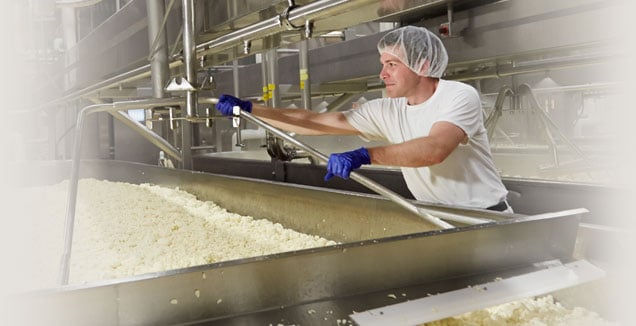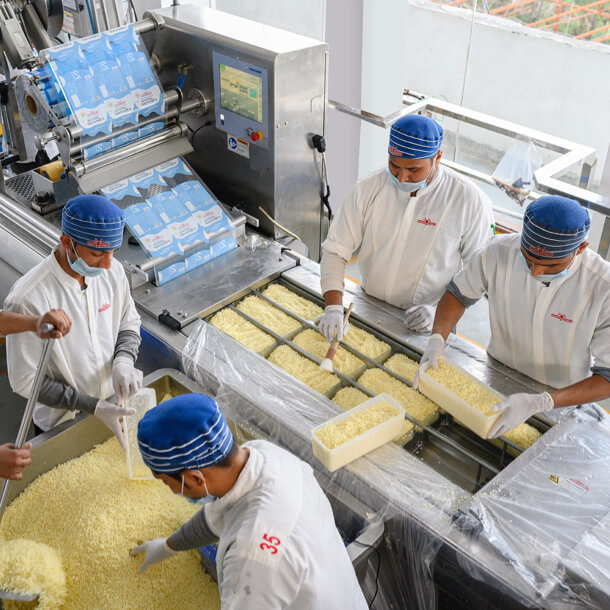Cheese Makers Melbourne: Crafting the Finest Cheeses Locally
Cheese Makers Melbourne: Crafting the Finest Cheeses Locally
Blog Article
Exploring the Art of Cheese Production: Methods, Procedures, and Innovations in the Dairy Products Market
The expedition of cheese manufacturing encompasses a diverse range of methods and processes that reflect both historic customs and contemporary technologies within the dairy sector. By taking a look at the complex art of fermentation, aging, and contemporary production methodologies, one gains understanding into just how craftsmens and massive producers alike adjust to progressing consumer preferences and sustainability challenges. As we consider the effects of these advancements, it becomes necessary to examine just how they will certainly shape the future landscape of cheese and its duty in our diet plans and cooking methods.
History of Cheese Making
Mapping its beginnings to old human beings, the background of cheese making reveals an abundant tapestry of cultural and technological evolution. Proof recommends that cheese production go back over 7,000 years, with historical findings from regions such as Mesopotamia and the Indus Valley showcasing very early dairy techniques. These societies made use of milk from domesticated pets, and with all-natural processes of fermentation and coagulation, they produced basic kinds of cheese.
As civilizations proceeded, the art of cheese making became extra refined. The old Egyptians and Greeks documented their techniques, which consisted of a variety of milk sources and varied strategies for aging and flavor cheese. The Romans even more sophisticated cheese production, exporting their knowledge throughout Europe, which led to regional adjustments and unique ranges.
The Center Ages witnessed the establishment of abbeys as facilities of cheese production, where monks established unique recipes that showed local tastes and offered sources. Throughout the centuries, cheese production has progressed, affected by factors such as geography, climate, and cultural methods. This abundant background not just highlights the resourcefulness of early societies but additionally lays the foundation for the diverse cheese varieties appreciated today around the world.
Conventional Cheese Manufacturing Methods
Typical cheese manufacturing strategies incorporate a range of classic techniques that have been given with generations. These strategies, frequently region-specific, mirror the special cultural heritage connected with cheese-making. The process usually starts with sourcing high-quality milk, which can vary in type depending upon the preferred cheese.
Coagulation is accomplished with the enhancement of rennet and in some cases an acid, resulting in the formation of curds. The curds are then cut and gently mixed, enabling whey to separate. This first coagulation phase is important, as it affects the structure and dampness content of the end product.

Fermentation and Aging Processes
Fermentation and aging processes are important to the growth of cheese, occurring after the initial coagulation and pressing stages. Throughout fermentation, specific bacterial cultures are introduced to the curds, facilitating the conversion of lactose into lactic acid. This acidity not only assists in curd preservation however additionally adds to the flavor profile and structure of the end product.
As the cheese ages, biochemical reactions proceed to take area, affecting its taste, fragrance, and appearance. Different cheeses call for differing aging periods, which can range from a Bonuses couple of weeks to a number of years, leading to distinct qualities.
Additionally, the existence of molds or yeasts on celebrity surface area can even more improve taste intricacy. For circumstances, blue cheeses rely upon details mold societies to produce their signature preference accounts. Overall, both fermentation and aging are crucial in specifying the uniqueness of cheeses, allowing craftsmens to create a varied variety of products that deal with a wide variety of tastes buds.
Modern Developments in Dairy Products Production
Technologies in dairy manufacturing have changed the cheese-making process, boosting efficiency useful content and item high quality. Technological advancements, such as automated bleeding systems and precision fermentation methods, have structured operations and enhanced uniformity in raw milk top quality. These systems lower labor costs and boost animal well-being by permitting even more comfortable and reliable bleeding practices.
In addition, the incorporation of information analytics and IoT (Web of Things) gadgets has actually enabled dairy manufacturers to check various specifications, such as temperature level and humidity, in real-time. cheese factory melbourne. This ability makes certain optimal conditions throughout the cheese-making procedure, leading to a better final product
In addition, innovations in pasteurization techniques, consisting of high-temperature short-time (HTST) pasteurization, have not just enhanced food safety and security yet also preserved the delicate flavors and nutrients intrinsic in milk.
Lasting techniques are likewise gaining grip, with developments in waste administration and renewable power usage. Several manufacturers are currently taking advantage of biogas from milk waste, promoting ecological stewardship while concurrently lowering functional expenses.
These modern innovations collectively add to a more reliable, sustainable, and high-grade cheese production procedure, establishing brand-new standards in the dairy sector.
Future Fads in Cheese Sector
As the cheese sector continues to develop, arising fads are reshaping manufacturing, usage, and advertising methods. One significant trend is the growing demand for artisanal and specialty cheeses, driven by customers looking for unique flavors and top quality active ingredients. This change is encouraging manufacturers to take on conventional techniques while incorporating modern technology for boosted top quality control.
Sustainability continues to be at the leading edge of customer choices, motivating suppliers to check out environment-friendly practices, such as reducing water use, maximizing energy consumption, and using biodegradable product packaging materials. Furthermore, developments in plant-based cheese options are broadening market possibilities, accommodating the raising variety of vegan and lactose-intolerant consumers.
Moreover, digital advertising and marketing and ecommerce are revolutionizing how cheese is marketed and sold, making it possible for manufacturers to link directly with consumers and tailor their offerings to particular demographics. Membership solutions and on-line systems are coming to be prominent networks for cheese distribution, enhancing availability and convenience.
Finally, health-conscious fads are affecting cheese solutions, with manufacturers establishing lower-fat, lower-sodium, and nutrient-enriched choices to fulfill consumer demands. As these patterns continue to unravel, the cheese industry is likely to witness a vibrant improvement that straightens with modern consumer values and choices.

Final Thought
The exploration of cheese manufacturing exposes a complicated interaction of classic methods and contemporary click developments. Typical techniques, rooted in historical techniques, continue to affect contemporary manufacturing while adjusting to developing customer preferences. Fermentation and aging procedures stay crucial to flavor advancement, while improvements in modern technology boost efficiency and sustainability. As the milk industry accepts health-conscious patterns and eco-friendly practices, the future of cheese production promises ongoing development and advancement, ensuring its long-lasting importance in cooking society.
Report this page